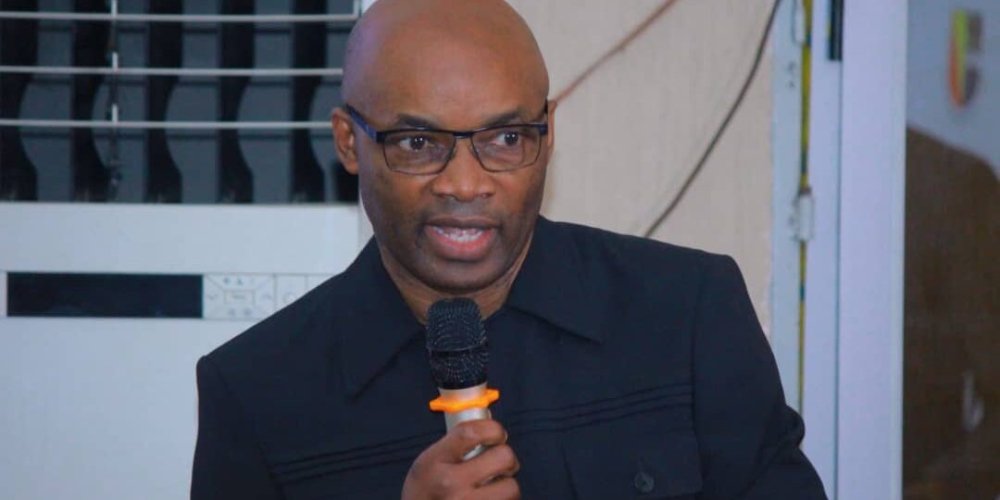On December 28, 2015, the Zambian government deported two Rwandan nationals, Egide Rwasibo and Innocent Habumugisha, in controversial circumstances.
Rwasibo is a laboratory technician who was working at the University Teaching Hospital of Zambia.
He was equally a leader of former Rwandan refugees living in Lusaka. Habumugisha is a businessman who had lived in Zambia for the most part of his childhood until this misfortune befell him.
Whilst Rwasibo was no longer a concern of the UNHCR because he was merely a former refugee,Habumugisha on the other hand enjoyed full protection of the UNHCR and the Zambian Commissioner’s Office as one of the few Rwandans who retained their Refugee Status.
Unclear reasons of deportation
When contacted shortly after the deportation had just taken place, Dickson Jere, who is the aforementionned’s lawyer said: “We do not know what they have done, but one of our clients was told that he was involved in genocide and wanted back home.” Confirming the deportation, Zambia’s Immigration Department spokesperson Namati Nshinka dismissed Dickson Jere’s claims by stating: “Yes, it is true that the two were deported yesterday [Sunday]. The reason is that their continued stay here was a danger to good order and peace. It has nothing to do with genocide.”
The Zambian authorities did not avail the general public with the reasons that led to the deportation of these two gentlemen other than a statement stating that that their continued stay in Zambia was a danger to good order and peace. Some Rwandan nationals resident in Lusaka who claimed to have witnessed the deportation stated that the two suspects were handcuffed and blindfolded before being taken to Kenneth Kaunda international airport.
Rwandan officials said that the aforementioned had no case to answer in Rwanda. “They were deported following Zambia’s immigration case while for us we do not have any case against them,”
Faustin Nkusi, Rwanda’s prosecution spokesperson, told KT Press without explaining details on the matter. “They are free people and we are not carrying any investigation against them,” he continued, adding that several reasons lead to deportation, which is always initiated by the host country.
However, Ange Sebutege, the communication director at Rwanda’s Directorate of Immigration and Migration told KT Press: “We received the two citizens like any Rwandan returning home. We cannot talk about deportation because it did not follow routine procedures (…) normally, the deported people come escorted which was not the case. The host country notifies us and this was not done.” Sebutege said the two citizens held Zambian travel documents when they arrived in Kigali.
Mr Habumugisha originates from Nyanza district-Southern Rwanda while Rwasibo hails from Rusizi district in Western Province. The latter visited Rwanda in March 2015 during the program Come and See, Go and Tell, where Rwandan refugees come to Rwanda to witness the country’s progress and peace so they can go and sensitize fellow refugees to repatriate.
In 2015, Rwasibo also participated in the “Go and See,Come And Tell” programme as the Chairman for Former Rwandan Refugees Living in Zambia. These programs are believed to spy on Rwandan refugees.
Lawful deportation?
Since this matter was never adjudicated upon as promised by the suspects’ lawyer, in this article, the author will try to analyse whether the law was abided by when deporting the two Rwandan Nationals.
Chapter 120 known as The Refugees (Control) Act is the law that regulates the welfare of all refugees in Zambia. Although refugees are protected from Non-Refoulement under Article 33 of the 1951 Convention Relating to the Status of Refugees as well as the 1967 Protocol Relating to the Status of Refugees and Article 3 of the 1984 Convention Against Torture, under Zambian law, a refugee may be deported should he fall under the criteria set in Section 10 of the fore stated Act (Deportation of refugees).
Section 10, subsection 1 reads that the Minister may at any time order any refugee to return by such means or route as he shall direct to the territory from which he entered Zambia. As such, it is clear that under Zambian legislation, “Refugee Status” is a conditional privilege which may be revoked after following procedures designated by municipal laws relating to the welfare of refugees.
Furthermore, in the same section, it reads that a court convicting any refugee of an offence under the provisions of this section may order the deportation of such refugee to the territory from which he entered Zambia. The Judiciary is also empowered to revoke one’s Refugee status upon determining whether their continued stay in Zambia will conflict with factors such as “good order and peace, national security, public policy or any other factors as the Competent Presiding Officer may deem fit.”
In addition, subsection 3 stipulates that where any person is ordered to return to the territory from which he entered Zambia or to be deported under subsection (1) or (2), he may be held in custody and deported in accordance with such order. Section 10 (4) says no order shall be made under subsection (1) or (2) in respect of a refugee if the Minister or the court, as the case may be, is of the opinion that such refugee may be tried, or detained or restricted or punished without trial, for an offence of a political character after arrival in the territory from which he came or is likely to be the subject of physical attack in such territory.
Section 10(4) is rather interesting because it proscribes the deportation of political refugees. In the case of Rwandan refugees, for example, those who scrutinize the Rwandan Genocide as propagated by the Rwandan government are punishable under Rwandan Law. Their dissident thinking is categorized as Genocide Ideology and may attract a 15 year sentence if one is lucky, and death of the Accused Person in most cases. It is clear from the above that sending any ardent critic of the oppressive Kigali regime back to Rwanda will not be in the best interest of justice.
Further analysis of subsection 5 and 6 leads to the understanding that refugees should comply with orders made under subsection 1. However, refugees who have been living in Zambia for a continuous period of not less than three months, which was the case for both men, should be informed immediately, prior to the making of the order, that they may make representations against their deportation if they are in danger of being tried, detained, restricted or punished without trial for political reasons as stipulated in section 10 (4). In such cases, it is the Minister that judges the representations and determines whether or not the refugee shall be deported.
From the above, it is clear that apart from being given prior notice, suspects must also be able to exonerate themselves and provide compelling evidence to the Minister as to why they think they should not be deported. Failure to accord them this opportunity is not only insidious to the refugee welfare at large but a clear violation of Zambian Legislation that was put in place to ensure that refugees are not sent back to the land which brought them terror where they are no compelling reasons to do so by the host country.
All in all, Rwanda still remains a volatile state where basic human rights of the citizenry are not observed. Also, given the extrajudicial killings of Kigali opponents and Rwandan refugees in exile, one may only assume that the decision to deport these two Rwandan nationals was in the interest of the safety of the thousands of Rwandan refugees and former refugees.
Until then, the manner in which these two suspects were deported as reported by the eye-witnesses was highly degrading and it is our hope that in the future, a more humane modus operandi will be employed irrespective of the circumstances of the case.
Article submitted by Lionel Nishimwe




